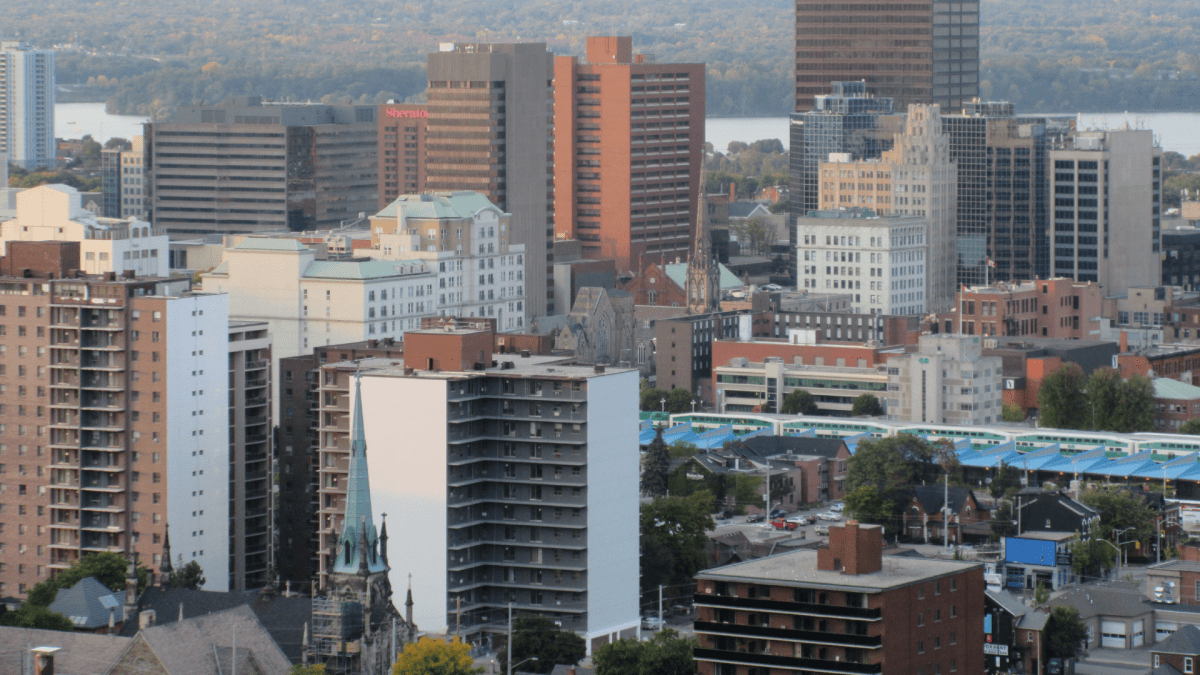Ahead of more municipal budget talks this week, the mayor of Hamilton, Ont., says the city doesn’t have any idea whether they will need a line item to address changes in development charges brought on by the Ford government’s new housing plan.

Andrea Horwath says councillors are concerned about the “millions of millions of dollars” the city’s budget may be on the hook for to compensate lost infrastructure financing typically covered through development charges in the past.
“This is exactly what we don’t know,” Horwath told 900 CHML’s Good Morning Hamilton.
“I mean … there are some estimates, but we won’t know how to peg that number until we get the the regulations from the government that outline the details.”
Hamilton is one of 29 municipalities across Ontario that Queen’s Park says will need new housing in order to accommodate an estimated increase of 238,000 residents by 2051 set out in a growth planning initiative.
The plan, to build 1.5 million homes in 10 years across the province, supports construction of affordable, non-profit and purpose-built rental housing by lowering or eliminating development charges the government attributes to a significant portion of housing costs.
In an op-ed published in the Hamilton Spectator on Thursday, Progressive Conservative MPP Donna Skelly attempted to clarify how the waiving of fees would work in aiding the city’s most vulnerable via subsidized housing units.
She suggested development charges on affordable housing could saddle an organization with some $2 to $3 million in charges that would have little attraction for a builder.
“We need subsidized housing units for people who are right off the street that need those wraparound services units … $500 to $600 a month,” Skelly told Global News,
“So when they build these homes for people who are desperate, who need some sort of subsidized housing, that is where the DC (development charge) has (been) waived.”
Municipal governments will still have the ability to implement their own development levy on most market homes, although that rate will be limited via new regulations.
Charges are not being waived on townhouses and single detached homes, according to Skelly.
“They’re getting the DC, which covers the entire cost of the water, wastewater, roads, streetlights, etc., and an annual income in a municipal tax that goes back into the coffers of the municipality to cover the cost of everything else,” Skelly explained.
In November, following explanation of the provincial plan through the eyes of the city’s planning and economic development in November, some councillors suggested the regulations “show(ed) little regard for the other aspects that make Hamilton a unique and desirable place to live.”
That charcterization came after Ontario’s housing ministry reversed the prospect of Hamilton holding firm on city’s urban boundary and accommodating future population growth through a combination of infill and intensification.
At issue for Horwath and council is clarity over what will qualify as affordable and not for profit housing which they insist “there’s no description of what that means.”
“So there’s some vagueness around what might be coming in the regulations that outline other kinds of what the government might consider to be affordable housing, but may not, in fact, be affordable housing,” Horwath said.
“There’s not a lot of clarity, and so that means there’s risk.”
No doubt of tax increase for Hamiltonians in 2023
With the city’s 2023 operating budget still before council, Horwath says an increase for property taxpayers in 2023 is an ‘inevitability.’
Last week, finance staff proposed a 5.4-per cent tax increase for 2023, significantly lower than the 6.9 per cent suggested by the city last August.
Horwath equated some of the uptick with inflation and rising interest rates “going through the roof.”
“We’re going to try to wrestle that lower, (but) absolutely I think we are going to have an increase this year,” Horwath said.
“It’s just all of the pressures that everyone is facing, are also being faced by the city.”
Transit, paramedic and fire services, snow-clearing, bike-sharing and the city’s new climate strategy will account for increases that will be covered through the 2023 tax levy.
Salary increases, more cash for conservation authorities, extra fuel costs and a new new waste collection contract will also account for those increases.
Some outstanding COVID-19 expenses that remain will be covered through a reserve created in 2021.
Councillors are scheduled to discuss the proposed budget until the end of March.










Comments